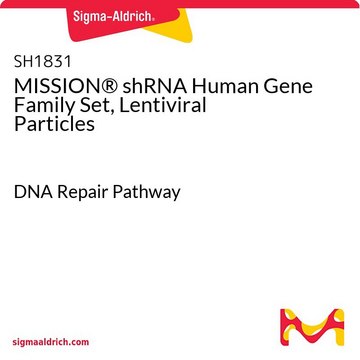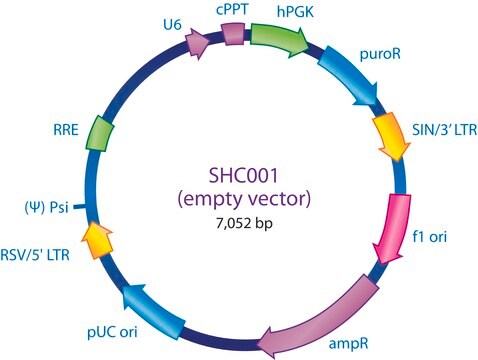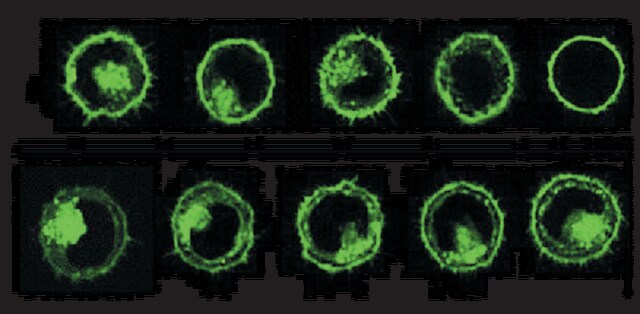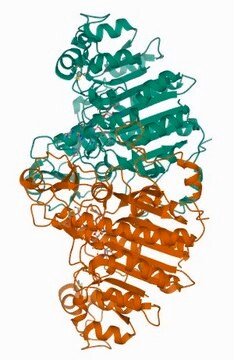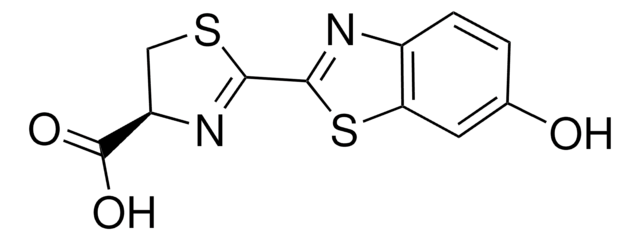SH1011
MISSION® shRNA Human Gene Family Set, Bacterial Glycerol Stock
Ion Channels
Se connecterpour consulter vos tarifs contractuels et ceux de votre entreprise/organisme
About This Item
Code UNSPSC :
41106609
Nomenclature NACRES :
NA.51
Produits recommandés
Gamme de produits
MISSION®
Température de stockage
−70°C
Informations sur le gène
Vous recherchez des produits similaires ? Visite Guide de comparaison des produits
Catégories apparentées
Description générale
The clones are sequenced-verified shRNA lentiviral plasmids (pLKO.1-puro) provided as 50 μl bacterial glycerol stocks (Terrific Broth, carbenicillin at 100 μg/ml and 15% glycerol). The set comes in 96-well plates that are barcoded for simple identification. A CD containing RefSeq, gene description, gene symbol, clone ID, hairpin sequence, locus link, and plate map positions are provided with the gene family set.
Autres remarques
Each MISSION shRNA clone is constructed within the lentivirus plasmid vector, pLKO.1-Puro, followed by transformation into Escherichia coli. The pLKO.1-Puro vector contains bacterial (ampicillin) and mammalian (puromycin) antibiotic resistance genes for selection of inserts in either bacterial or mammalian cell lines. Each clone set consists of an average of 3-5 constructs that have been designed against each target gene using a proprietary algorithm. Therefore, a range of knockdown efficiency, with at least one construct from each gene set being >70%, can be expected when using these clones. This allows one to examine the effect of loss of gene function over a large series of gene knockdown efficiencies. Each shRNA construct has been cloned and sequence verified to ensure a match to the target gene.
For a detailed listing of other available gene family sets, visit the gene family set website.
Number of Genes: 278, Number of Clones: 1456
The exact gene and clone count at time of purchase may vary slightly as the TRC library is continually updated.
Informations légales
Use of this product is subject to one or more license agreements. For details, please see http://sigmaaldrich.com/missionlicense .
MISSION is a registered trademark of Merck KGaA, Darmstadt, Germany
Code de la classe de stockage
10 - Combustible liquids
Classe de danger pour l'eau (WGK)
WGK 3
Point d'éclair (°F)
Not applicable
Point d'éclair (°C)
Not applicable
Faites votre choix parmi les versions les plus récentes :
Certificats d'analyse (COA)
Lot/Batch Number
It looks like we've run into a problem, but you can still download Certificates of Analysis from our Documents section.
Si vous avez besoin d'assistance, veuillez contacter Service Clients
Déjà en possession de ce produit ?
Retrouvez la documentation relative aux produits que vous avez récemment achetés dans la Bibliothèque de documents.
Nuria Sánchez-Bastardo et al.
Carbohydrate polymers, 160, 143-152 (2017-01-25)
The extraction/hydrolysis process of arabinoxylans from destarched wheat bran was studied in this work using different mesoporous silica supports and the corresponding RuCl
Nuria Sánchez-Bastardo et al.
Bioresource technology, 238, 379-388 (2017-04-30)
The hydrolysis process of a real fraction of arabinoxylans derived from wheat bran was studied. The influence of catalyst type and loading, reaction time and different metal cations were discussed in terms of the hydrolysis yield of arabinose and xylose
Declan A Doyle
Molecular membrane biology, 21(4), 221-225 (2004-09-17)
Water is probably the most important molecule in biology. It solvates molecules, all biochemical reactions occur in it and it is a major driving force in protein folding. Phospholipid membranes separate different water environments, but connections do exist between the
Stephen C Cannon
Neurotherapeutics : the journal of the American Society for Experimental NeuroTherapeutics, 4(2), 174-183 (2007-03-31)
The ion channelopathies are a diverse array of human disorders caused by mutations in genes coding for ion channels. More than 40 different channelopathies have been identified, with representative disorders from every major class of ion channel and affecting all
Sheila A Stewart et al.
RNA (New York, N.Y.), 9(4), 493-501 (2003-03-22)
Genome-wide genetic approaches have proven useful for examining pathways of biological significance in model organisms such as Saccharomyces cerevisiae, Drosophila melanogastor, and Caenorhabditis elegans, but similar techniques have proven difficult to apply to mammalian systems. Although manipulation of the murine
Notre équipe de scientifiques dispose d'une expérience dans tous les secteurs de la recherche, notamment en sciences de la vie, science des matériaux, synthèse chimique, chromatographie, analyse et dans de nombreux autres domaines..
Contacter notre Service technique


